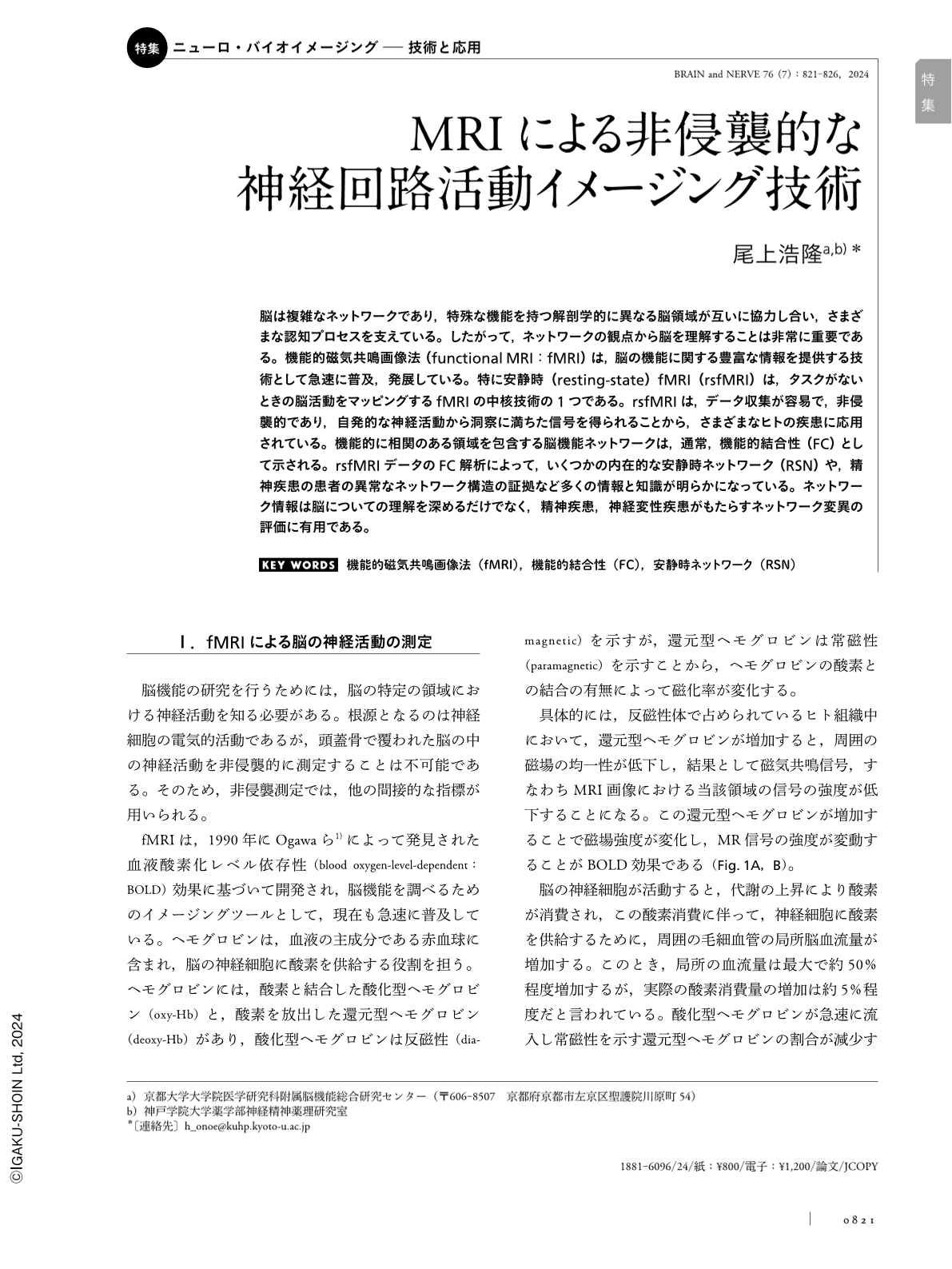Japanese
English
- 有料閲覧
- Abstract 文献概要
- 1ページ目 Look Inside
- 参考文献 Reference
脳は複雑なネットワークであり,特殊な機能を持つ解剖学的に異なる脳領域が互いに協力し合い,さまざまな認知プロセスを支えている。したがって,ネットワークの観点から脳を理解することは非常に重要である。機能的磁気共鳴画像法(functional MRI:fMRI)は,脳の機能に関する豊富な情報を提供する技術として急速に普及,発展している。特に安静時(resting-state)fMRI(rsfMRI)は,タスクがないときの脳活動をマッピングするfMRIの中核技術の1つである。rsfMRIは,データ収集が容易で,非侵襲的であり,自発的な神経活動から洞察に満ちた信号を得られることから,さまざまなヒトの疾患に応用されている。機能的に相関のある領域を包含する脳機能ネットワークは,通常,機能的結合性(FC)として示される。rsfMRIデータのFC解析によって,いくつかの内在的な安静時ネットワーク(RSN)や,精神疾患の患者の異常なネットワーク構造の証拠など多くの情報と知識が明らかになっている。ネットワーク情報は脳についての理解を深めるだけでなく,精神疾患,神経変性疾患がもたらすネットワーク変異の評価に有用である。
Abstract
The brain comprises a complex network of anatomically distinct regions (each with specialized functions) that collaborate to support various cognitive processes. Therefore, it is important to understand the brain from the perspective of a complex network. Functional magnetic resonance imaging (fMRI) is increasingly being accepted for its ability to provide useful insights into brain function. Among the fMRI techniques available in clinical practice, resting-state fMRI (rsfMRI) represents the core method for mapping brain activity in the absence of specific tasks; studies have reported the usefulness of rsfMRI in the investigation of various human diseases. Functional brain networks, which consist of interconnected regions that show correlated activities, are typically depicted as functional connectivity (FC). FC analysis using rsfMRI data provides extensive information, revealing intrinsic resting-state networks and highlights deviations in network structure among patients with psychiatric disorders. Such network insights not only deepen our understanding of the brain but also facilitate assessment of network alterations associated with psychiatric and neurodegenerative diseases.

Copyright © 2024, Igaku-Shoin Ltd. All rights reserved.


